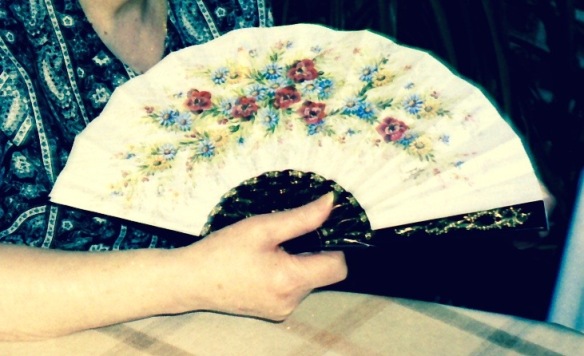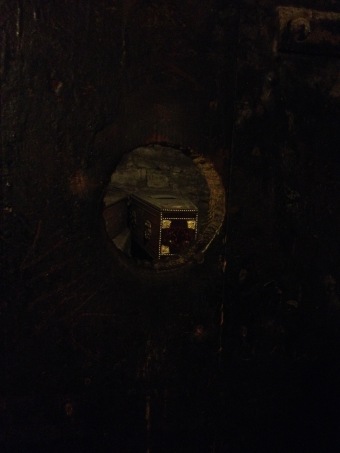My grandmother’s body was sturdy and solid. When, as a small child, I drove my head into her belly, arms aloft to clasp at her waist, I felt no broken lines, no fissures, no gaps. There was comfort in her density and warmth in the weight that anchored her to the tiled floor of her minute apartment. A short woman, a few inches under five feet, she was dwarfed by the incongruously stately height of the ceilings hovering above her, but her silhouette in the darkness of an unlit corridor filled the threshold of her kitchen. She stood there guarding her lentil stew, lamb chops or soupy rice with clams in her checked white and grey shirt, and tweed skirt, t-towel dangling from her waistband, scrubbed faced and blunt bob barely visible in the shadows. She called me “niña” and she whispered family stories as food bubbled under the lid of her pot. She was a figure at the threshold for me: she connected the unknown past with the present, she made me travel back in time, she gave me the gift of memory.
Her hands told another story: slender, elegant and long-fingered, they were her one concession to art and air. I admired them as she fanned herself in sweltering summer nights and imagined them flying over the keys of the piano she played as a young woman before the death of her father took away the modest family fortune that may have secured music stayed in her life. With those same hands she wrote letters to the women she had left behind in her personal diaspora: cousins steeped in the religious fervour of a whitewashed village in the South; friends bathed in the rainy melancholy of Galicia veiled in rain. Her handwriting was fluent and patrician and betrayed no effort. My own was spidery and belaboured: it took me a long time to be promoted to using a pen instead of a pencil, as the stringent requirements of my pre-schooling required a neatness that was beyond the reach of my compromised dexterity. I imagined the loops of her hand on the paper as the variegated paths of friendship. Watching her I learnt to keep friends close to your chest at all times, to cherish friendship above all else.
In my early twenties I came to Ireland and never went back to Madrid permanently. I became one of her correspondents: her letters followed me around my perambulations in Dublin as I was forced once more to uproot and move to yet another ramshackle house in the inner city. At first they had the airy elegance of the writing hand I knew so well when she wrote to her friends in my presence when I was a child. As the years went by, however, the rest of her body started to match their evanescence and I could feel her spirit thin out on the lines on the paper: a “t” breaking and separating from an “a”; the shattered loop of an “o”; a steady incline on the line; the much fainter touch of the nib of the pen on her signature. Her body began to break like the signs on the page until she stopped writing and my own body became the one that anchored us both when we embraced.








